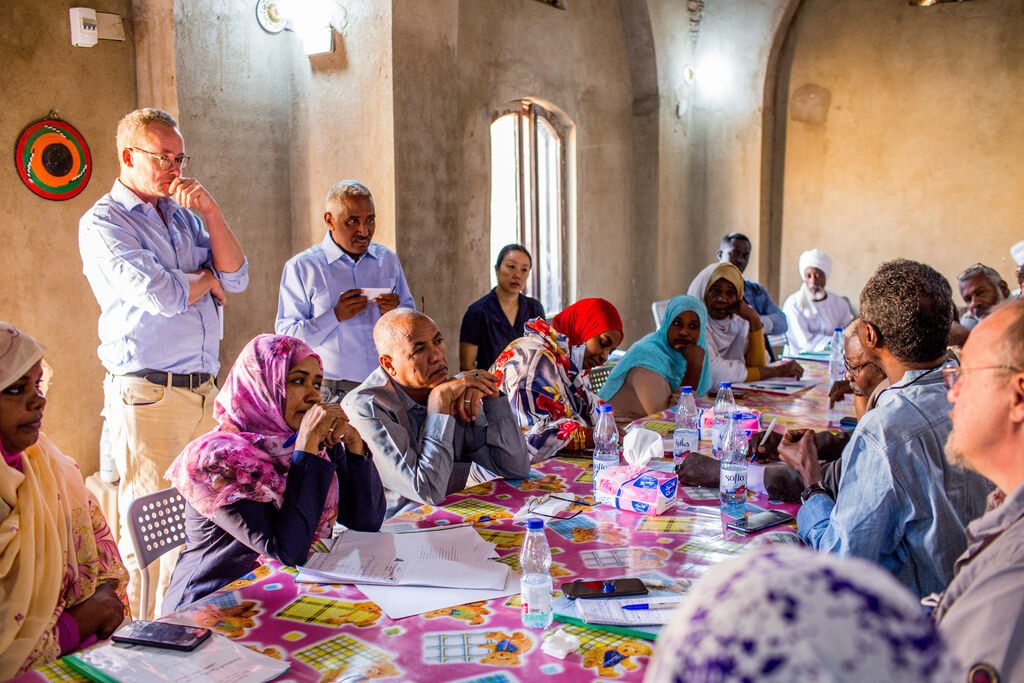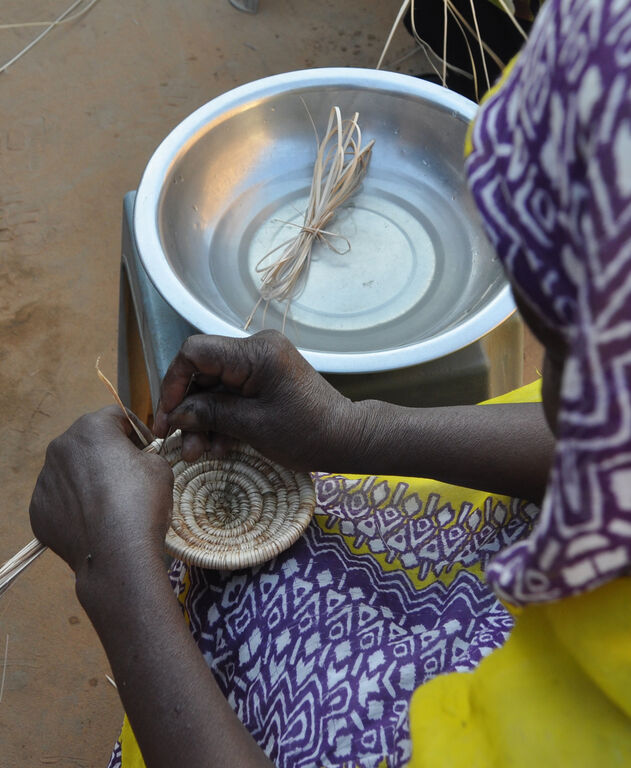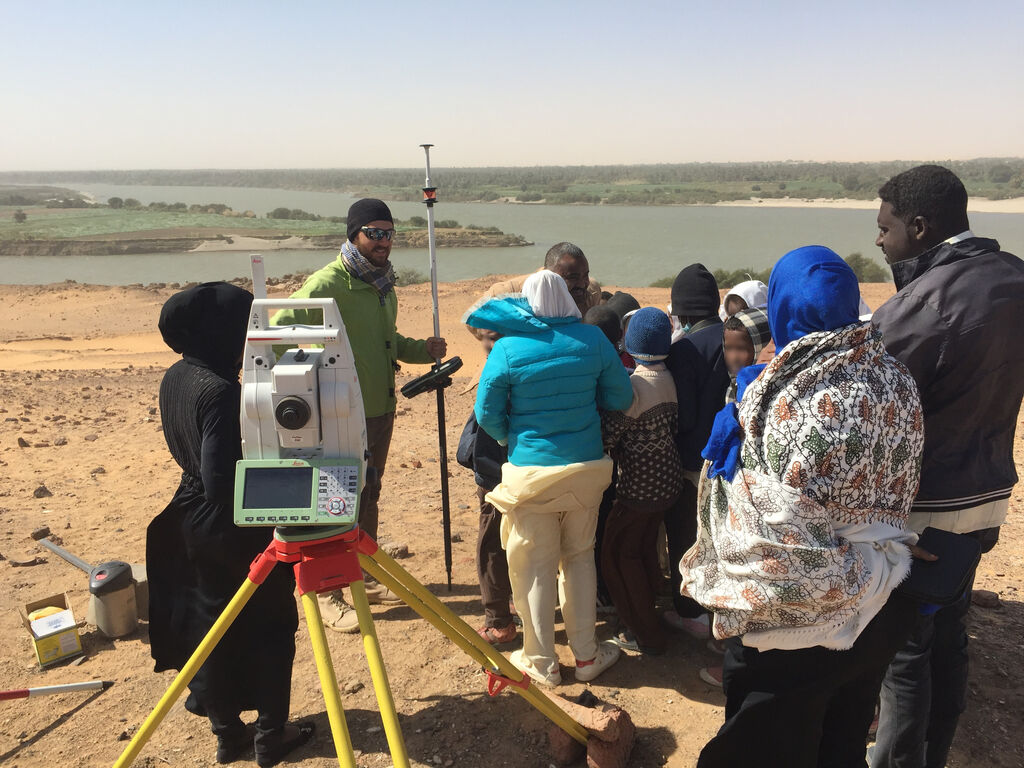Innovative approach to archaeological research of the Polish Centre of Mediterranean Archaeology UW appreciated by the European Research Council.
Artur Obłuski, head of the ERC Starting Grant UMMA project implemented at the Polish Centre of Mediterranean Archaeology of the University of Warsaw, is one of 3 finalists for the European Research Council's Public Engagement with Research Award in the INSPIRE category. The award is granted to ERC grant winners who have demonstrated excellence in engaging with communities beyond the world of science during their projects.

Heritage and Sustainable Development action plan was discussed with stakeholders and communities of Old Dongola, photo M. Rekłajtis
There is also a public vote award in the prize pot, which will be decided by social media voting - this will run until the day of the ceremony scheduled for 14 July. The ERC grantee receiving the most votes will be acknowledged with a ‘special mention’ of the public at the award ceremony when the three winners will also be announced.
Financed by ERC the project of Prof. Artur Obłuski "UMMA - Urban Metamorphosis of the community of a Medieval African capital city" is carried out in Old Dongola, Sudan.
- "Old Dongola, where the remains of magnificent churches, monasteries with the largest collection of medieval paintings in the world, or the oldest surviving mosque in Sudan and monumental tombs of sheikhs (Islamic spiritual leaders) have been preserved, is an vital feature of world cultural heritage. This potential should not only benefit the archaeologists excavating there, but also local communities and Sudanese society more generally. So we have initiated with local communities, but also with local and regional governments and central authorities, an effort to take a strategic approach to the heritage preserved at the site. This is so that our hosts, apart from the splendour of the site, will also have more tangible benefits, e.g. economic gains as part of sustainable development, the benefits which will go to local communities and not to large corporations. Let's remember that Sudan is the 8th poorest country in the world" - explains the project director.

Women in Ghaddar still maintain the basket weaving technique, making beautiful tabaq here, photo T. Fushiya
Collaboration with local communities for the purposes of archaeology, heritage and sustainable development is one of the elements of social responsibility of archaeology and a new strategy in the PCMA UW research introduced by Artur Obłuski, director of the institution.
It is an approach that seeks to promote a closer relationship between researchers and the people living in the regions where the research is carried out. It allows archaeological results to be embedded in their social and geographical contexts. The implementation of this strategy in Old Dongola is coordinated by Dr Tomomi Fushiya, who specialises in collaborative archaeology and has been working on similar projects in Sudan for years.
As Obłuski and Fushiya emphasise, work on an archaeological project should be conducted in a bilateral way, taking into account the local point of view and traditional knowledge of cultural heritage. A team effort of UMMA project and the partnership with the communities led to a successful implementation of this project. Such a participatory approach, involving contemporary societies, enables a truly two-way collaboration and can contribute to the decolonisation of the methods used in archaeology in Sudan.

Adrian Chlebowski explains about his survey work to local school students, photo T. Fushiya
Vote for the „Engaging local community in Sudan to promote archaeological heritage” project in the public vote: https://pollunit.com/polls/lhcrptmbiaac9v6i3tobjq?embed=1
Read more: https://pcma.uw.edu.pl/en/2022/06/29/pcma-uw-inspires-european-researchers/
Contact: Agnieszka Szulc-Kajak, Agnieszka Szymczak:
This email address is being protected from spambots. You need JavaScript enabled to view it. ; +48 22 55 313 15
Source: University of Warsaw










